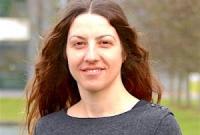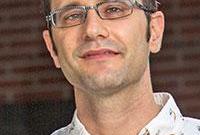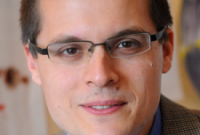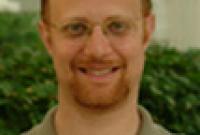Theory of Computation (TOC) Seminar
 |
Alexandr Andoni: Optimal Hashing for High-Dimensional Spaces Monday, October 3, 2016 - 4:00pm to 5:00pm Abstract:
We survey recent advances in the approximate nearest neighbor search
problem in high-dimensional Euclidean/Hamming spaces, which go beyond
the classic Locality Sensitive Hashing technique for the problem. The |
 |
Mohsen Ghaffari: Improved Local Distributed Graph Algorithms Tuesday, September 27, 2016 - 4:00pm to 5:00pm Abstract: How can the computers in a network interact and communicate to solve the network's graph problems efficiently? |
 |
Alina Ene: From Minimum Cut to Submodular Minimization: Leveraging the Decomposable Structure Monday, September 19, 2016 - 4:00pm to 5:00pm |
 |
Boaz Barak: Computational Bayesianism, Sums of Squares, and Unicorns Tuesday, September 13, 2016 - 4:00pm to 5:00pm ABSTRACT: Can we make sense of quantities such as "the probability that 2^81712357 - 1 is prime" or "the probability that statement X is a logical contradiction"? |
 |
Sebastien Bubeck: New Results at the Crossroads of Convexity, Learning and Information Theory Tuesday, October 25, 2016 - 3:45pm to 5:15pm Abstract: I will present three new results (no background in optimization will be assumed, all concepts will be defined and motivated): (i) the Cramer transform of the uniform measure on a convex body is a universal self-concordant barrier; (ii) projected gradient descent with Gaussian |
 |
Ken Clarkson: More Near-Linear Linear Algebra, via Sketching Tuesday, May 3, 2016 - 4:00pm to 5:00pm Abstract: In recent years there have been significant improvements in matrix |
 |
Rocco Servedio: Two Circuit Lower Bounds Tuesday, April 26, 2016 - 4:00pm to 5:00pm Abstract:
|
 |
Madhu Sudan: Communication Amid Uncertainty Tuesday, May 10, 2016 - 4:00pm to 5:00pm Abstract: Computers and humans communicate in order to gain information about the state of the world around them, and to be able to determine how to act in the future. Effective communication relies on large shared context between the communicating parties: Such shared context tells the communi |
 |
David Zuckerman: Explicit Two-Source Extractors and Resilient Functions Tuesday, April 12, 2016 - 4:00pm to 5:00pm Abstract: We explicitly construct an extractor for two independent sources on n bits, |
 |
Omer Reingold: Constant-round Interactive-proofs for Delegating Computation Tuesday, March 8, 2016 - 4:00pm to 5:00pm Abstract: Interactive proofs, introduced by Goldwasser, |
